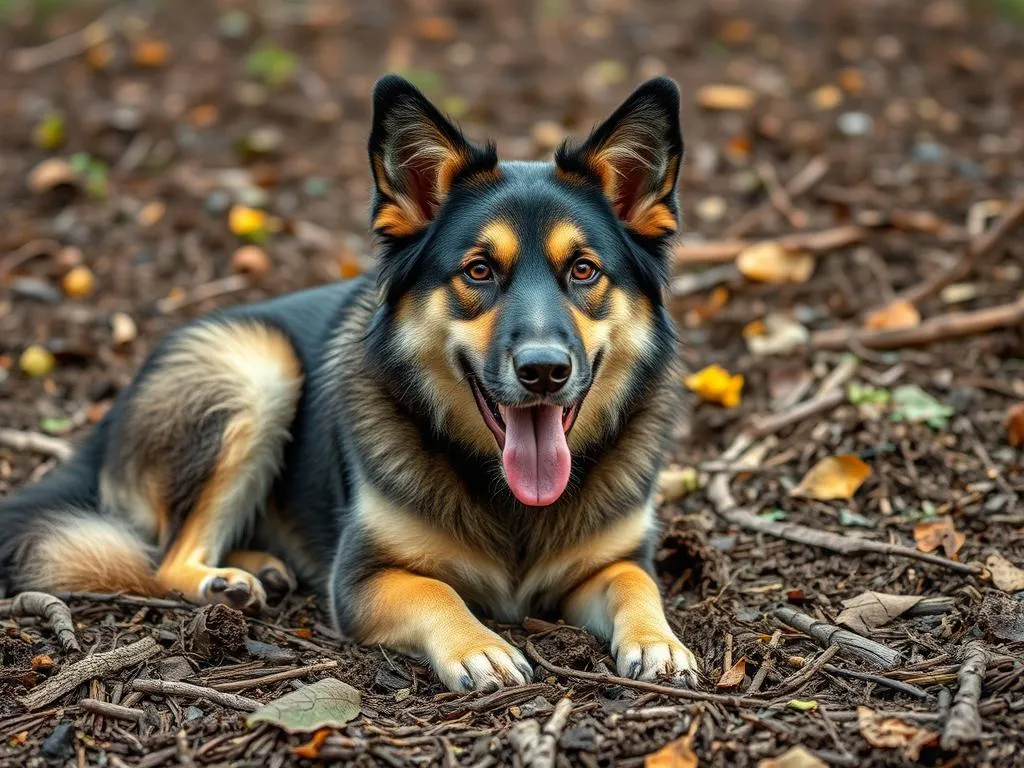
Introduction
Maintaining your dog’s health is crucial for their happiness and longevity. As pet owners, we constantly strive to provide a safe and healthy environment for our furry companions. However, our dogs often encounter various risks in their surroundings, including those that may not be immediately obvious, such as mulch.
In this article, we will address the concern of whether mulch is safe for dogs. Understanding the potential risks associated with different types of mulch will empower pet owners to make informed choices about landscaping and garden care that prioritize their dog’s well-being.
Understanding Mulch
What is Mulch?
Mulch is a layer of material applied to the surface of soil in gardens and landscaping. It serves various purposes, enhancing both the appearance and health of the soil. There are several types of mulch, including:
- Wood chips: Made from shredded trees, this type decomposes slowly and enriches the soil.
- Bark: Similar to wood chips but typically thicker; it offers a more aesthetic appeal.
- Straw: Often used in vegetable gardens, straw is lightweight and provides good insulation.
- Rubber mulch: Made from recycled rubber tires, this type offers durability but raises safety concerns.
Mulch is commonly used for moisture retention, temperature regulation, weed suppression, and adding aesthetic appeal to gardens. However, the safety of mulch around dogs is a significant consideration for pet owners.
Benefits of Using Mulch
Using mulch in your garden has several advantages:
- Soil moisture retention: Mulch helps keep the soil moist, reducing the frequency of watering.
- Temperature regulation for soil: It insulates the ground, keeping it cooler in the summer and warmer in the winter.
- Weed suppression: A thick layer of mulch can prevent weeds from sprouting, reducing the need for herbicides.
- Aesthetic appeal: Mulch enhances the look of your garden, providing a polished and finished appearance.
Despite these benefits, it’s essential to consider how each type of mulch affects the safety of your dogs.
Potential Risks of Mulch for Dogs
Types of Mulch and Their Safety Concerns
While mulch has many benefits, certain types can pose health risks to dogs. Here, we examine some common mulch types and their safety concerns:
-
Wood-based Mulch: Common varieties include cedar, pine, and hardwoods. Some wood mulches can be toxic to dogs, potentially causing allergic reactions or gastrointestinal upset if ingested.
-
Cocoa Mulch: This popular garden mulch is made from cocoa shells and contains theobromine, a substance found in chocolate. Theobromine can be toxic to dogs, leading to symptoms such as vomiting, diarrhea, and even seizures.
-
Rubber Mulch: While durable, rubber mulch poses ingestion risks. Dogs may be tempted to chew on it, and ingesting rubber can lead to gastrointestinal blockages. Additionally, there are concerns about chemical leaching from rubber products.
Symptoms of Mulch Toxicity in Dogs
If your dog has ingested mulch, you should be aware of the signs of potential toxicity. These symptoms can include:
- Gastrointestinal distress: Vomiting and diarrhea are common reactions if a dog has ingested toxic mulch.
- Allergic reactions: Symptoms such as itching, swelling, and redness may indicate an allergic response.
- Lethargy and behavioral changes: If your dog seems unusually tired or is behaving differently, it could be a sign of distress.
Recognizing these symptoms quickly can be critical to ensuring your dog’s health.
Best Practices for Mulch Use Around Dogs
Choosing Dog-Safe Mulch
To ensure your dog’s safety, selecting mulch that is safe for pets is essential. Recommended types of mulch for pet owners include:
- Natural hardwood mulch: Generally considered safe, as long as it’s free from additives or chemicals.
- Straw: A safe, organic option that can provide insulation and weed suppression without toxicity.
- Compost: This organic matter is safe and beneficial for the garden without posing risks to your dog.
Avoiding hazardous materials and chemicals in mulch will help create a safer environment for your pets.
Preventing Access to Mulch
To protect your dog from potential risks associated with mulch, consider implementing the following strategies:
-
Fencing and barriers: Installing a fence or physical barrier around garden areas with mulch can prevent your dog from accessing potentially harmful materials.
-
Training dogs to avoid certain areas: Training your dog to stay away from specific areas of the yard can also be effective in minimizing risks. Positive reinforcement techniques can help your dog learn which areas are off-limits.
Monitoring Your Dog’s Behavior
Keeping an eye on your dog’s behavior can help you identify any potential issues early. Regularly check for signs of distress or discomfort, especially after outdoor playtime. If your dog shows any symptoms of mulch toxicity, it’s vital to take immediate action, including consulting your veterinarian.
Alternative Landscaping Solutions
Dog-Friendly Garden Design
Creating a dog-friendly garden is not only beneficial for your pet but can also enhance your outdoor space. Consider incorporating safe plants and ground covers that are non-toxic to dogs, such as:
- Marigolds: Bright and cheerful, these flowers are safe for dogs and can also deter pests.
- Snapdragons: These colorful flowers are non-toxic and can add beauty to your garden.
- Clover: This ground cover is safe for pets and can withstand heavy traffic.
Additionally, using natural mulch alternatives, such as grass clippings or shredded leaves, can provide safe options for landscaping without the risks associated with traditional mulch.
Creating a Safe Outdoor Space
Designing a safe outdoor area for your dog can be rewarding. Here are some tips:
- Designate pet areas: Create specific zones in your yard for your dog to play and relax, using safe materials.
- Using non-toxic materials: Opt for non-toxic materials in your landscaping to ensure your dog’s safety while maintaining beauty in your garden.
What to Do If Your Dog Consumes Mulch
Immediate Steps to Take
If you suspect that your dog has consumed mulch, take the following immediate steps:
- Assess the quantity and type of mulch ingested: Determine what type of mulch your dog has ingested and how much.
- Contact your veterinarian or poison control: Promptly seek professional advice to address any potential health risks.
Treatment Options
Treatment options for dogs that have ingested mulch may vary based on the type and amount consumed. Common treatments include:
- Inducing vomiting: If advised by your veterinarian, inducing vomiting may help remove harmful substances from your dog’s system.
- Medications: Your vet may prescribe medications to manage symptoms or treat any potential toxicity.
Follow-up care is crucial; monitor your dog for any recurring symptoms or behavioral changes.
Conclusion
In summary, understanding whether mulch is safe for dogs is essential for all pet owners. While mulch can provide numerous benefits in landscaping, certain types can pose significant health risks to dogs. By choosing dog-safe mulch, implementing preventive measures, and monitoring your pet’s behavior, you can create a safe and beautiful outdoor environment.
As responsible pet owners, it’s our duty to ensure that our furry friends stay healthy and safe in their surroundings.
FAQs
What types of mulch are safe for dogs?
Natural hardwood mulch and straw are typically considered safe options for dog owners. Always check that no harmful chemicals or additives have been included.
Is cocoa mulch safe for dogs?
No, cocoa mulch contains theobromine, which is toxic to dogs. It’s best to avoid using cocoa mulch in any dog-friendly environments.
Can dogs have allergic reactions to mulch?
Yes, some wood-based mulches can cause allergic reactions in dogs, leading to symptoms such as itching or gastrointestinal upset.
What should I do if my dog eats mulch?
If your dog consumes mulch, assess the situation and contact your veterinarian or poison control center for guidance on the next steps.









